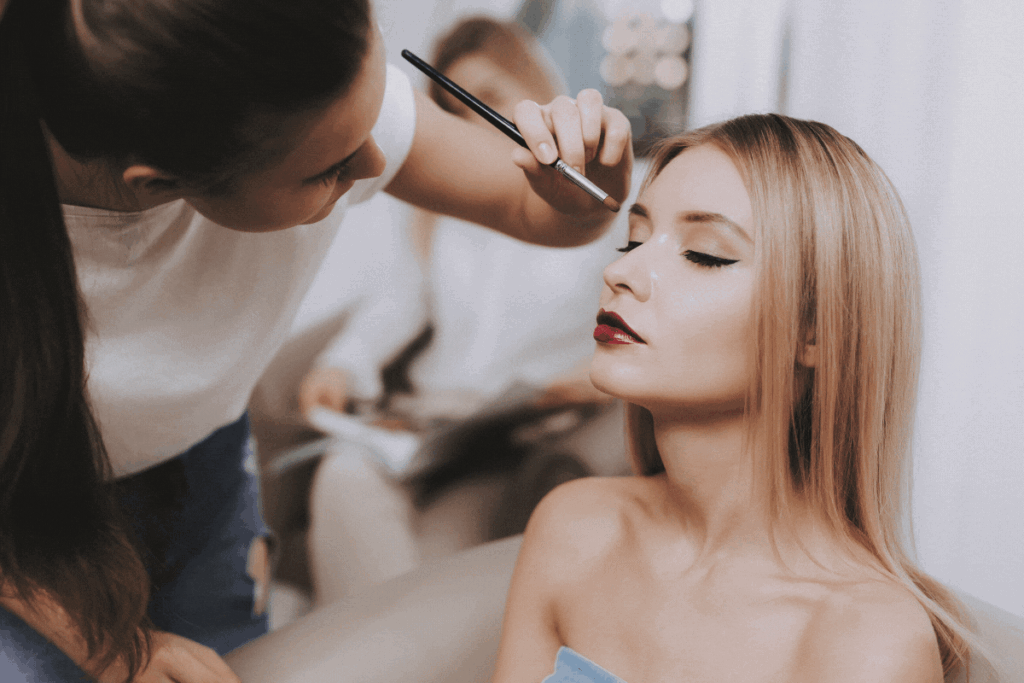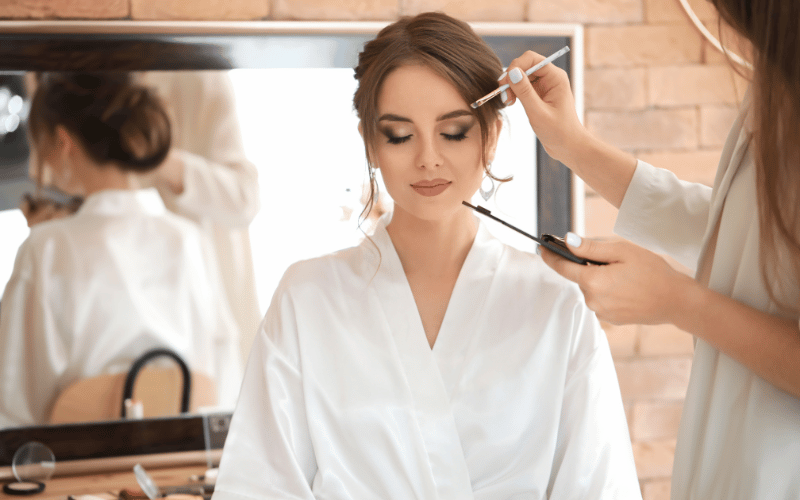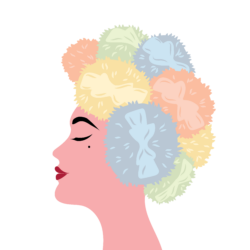There’s something about the chair — the makeup stool, the shampoo basin, the esthetician’s table — that draws out the truth. Not the rehearsed truth, the kind you post or plan. But the sideways truth. The tender, jagged, even embarrassing parts. Beauty service providers — makeup artists, hairstylists, waxers, estheticians — we don’t just groom or paint or tint. We listen. We absorb. We become the quiet keepers of the emotional residue people don’t realize they’re leaving behind.
We are not just witnesses to transformation. We are also witnesses to confession.

It happens subtly. A client sits down and sighs — the kind of sigh that punctuates something deeper. And we ask, “How have you been?” Not just to be polite, but because we’re attuned. And the floodgates open. It could be grief. A breakup. An affair. A diagnosis. An identity shift. Or simply the fragile feelings that come with aging, with invisibility, with wanting to feel beautiful in a world that doesn’t always make space for softness.
We hear things before spouses, before best friends. Sometimes we hear things people haven’t even told themselves yet.
We’re a strange kind of mirror — one that reflects not only the outside but also what’s under the surface. Our work demands a psychological agility: to validate without judgment, to hold without absorbing, to stay grounded while others unravel. There is intimacy in proximity — our hands near their face, our breath close to theirs, our gaze analyzing each feature. That proximity opens something. It invites disclosure.
And then there’s the other side: the grapevine. The quiet hum of information that travels through salon walls and whispered consultations. Not in a gossipy sense, but as part of a larger web — an underground network of care, concern, sometimes caution. We know who’s hurting. Who’s reinventing. Who just got brave.

It’s easy to dismiss beauty as superficial. But anyone who’s worked behind the scenes knows the truth: beauty is often the surface people stand on while dealing with the deep. And the professionals who meet them there? We are the vaults. The empaths. The receptors of humanity’s messiness, its resilience, its longing.
The next time you’re in a treatment room, a makeup chair, a salon, take a moment to honor the space. It’s more than a place for polish. It’s a quiet confessional, a strange sacred, a mirror that sees far more than the surface.
And for those of us in the industry, keep tending. Keep listening. Keep holding it with care. You’re doing more than you know.
